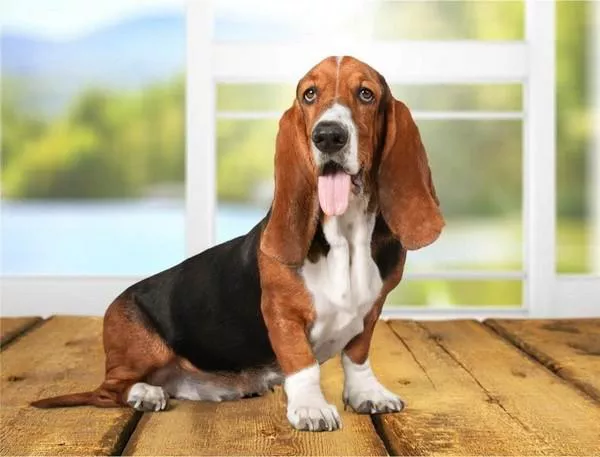Introduction
Welcoming a basset hound puppy into your home is an exciting and fulfilling experience. As a responsible pet owner, it is essential to provide your new furry friend with the nutrition they need to grow into a healthy adult dog. A well-balanced diet is crucial during the puppy stage, as it sets the foundation for their overall health and well-being. In this comprehensive guide, we will explore the dietary requirements, feeding schedule, and essential nutrients for a basset hound puppy, ensuring they receive the best possible start in life.
1. Understanding the Nutritional Needs of a Basset Hound Puppy
Before delving into specific feeding recommendations, it is vital to understand the nutritional requirements of a basset hound puppy. A balanced diet for puppies should consist of the following essential nutrients:
Proteins: High-quality proteins are the building blocks for growth and development in puppies. They aid in muscle formation and repair, as well as supporting the immune system. Look for puppy food that contains animal-based proteins such as chicken, beef, or fish.
Fats: Healthy fats are a concentrated source of energy and play a vital role in the development of a puppy’s brain and nervous system. Omega-3 and Omega-6 fatty acids are particularly beneficial for their skin and coat health.
Carbohydrates: Carbohydrates provide the necessary energy for an active puppy. Choose complex carbohydrates such as whole grains and vegetables, which offer a steady release of energy and essential fiber for healthy digestion.
Vitamins and Minerals: Puppies require a wide range of vitamins and minerals to support their growing bodies. Key nutrients include vitamin A, vitamin E, vitamin D, calcium, phosphorus, and iron. These can be obtained through a balanced diet or in the form of supplements.
2. Selecting the Right Puppy Food
When it comes to choosing the right puppy food for your basset hound, there are several options available. Consider the following factors:
Age-Appropriate Formulas: Opt for puppy-specific formulas that are tailored to meet the nutritional needs of growing dogs. These formulas contain the appropriate balance of proteins, fats, and other nutrients required for optimal development.
Premium Quality: Look for high-quality dog food brands that prioritize natural, wholesome ingredients. Avoid products that contain excessive fillers, artificial additives, or by-products.
Breed Size Considerations: Basset hounds are medium to large breed dogs, so selecting a formula specifically designed for medium to large breed puppies is recommended. These formulas typically contain the right balance of nutrients to support healthy bone growth.
Consult Your Veterinarian: It is always a good idea to consult your veterinarian for personalized recommendations based on your puppy’s specific needs and any potential health concerns.
3. Feeding Schedule and Portion Control
Establishing a regular feeding schedule is crucial for a basset hound puppy’s overall well-being. Puppies generally require more frequent meals than adult dogs due to their high energy levels and rapid growth. Here is a general guideline for feeding schedules:
Age 6-8 weeks: Puppies should be fed 4-5 meals a day.
Age 8-12 weeks: Reduce the frequency to 3-4 meals a day.
Age 12-16 weeks: Gradually decrease to 3 meals a day.
Age 16 weeks and older: Transition to 2 meals a day.
Ensure that you divide the recommended daily portion into the appropriate number of meals to avoid overfeeding or underfeeding. Portion control is essential to prevent obesity and maintain a healthy body condition. Always follow the feeding guidelines provided by the puppy food manufacturer, but keep in mind that individual needs may vary.
4. Treats and Training
Treats play an important role in training and bonding with your basset hound puppy. However, it is crucial to choose treats that are nutritious and appropriate for their age and size. Consider the following guidelines when using treats:
Size and Consistency: Opt for small, soft treats that are easily chewable. Basset hound puppies have a tendency to gobble treats quickly, and larger or harder treats can pose a choking hazard.
Training Rewards: Reserve a portion of your puppy’s daily food intake for training rewards. This will help prevent excessive calorie intake and ensure a balanced diet.
Healthy Alternatives: Consider using small pieces of fresh fruits or vegetables as low-calorie and nutritious training treats. Carrots, blueberries, and apple slices are popular choices.
5. Special Considerations
While the basic principles of feeding a basset hound puppy apply to most individuals, some puppies may have specific dietary needs or health concerns. In such cases, it is crucial to consult with your veterinarian for personalized advice. Here are a few special considerations:
Food Allergies or Sensitivities: Some puppies may have allergies or sensitivities to certain ingredients. If you notice signs of digestive upset, skin irritation, or excessive itching, consult your veterinarian to determine if a dietary adjustment is necessary.
Growth Rate Monitoring: Basset hounds are prone to skeletal issues, such as hip dysplasia, due to their rapid growth rate. Regular monitoring of their growth and weight is essential to ensure they are developing at a healthy pace. Your veterinarian can provide guidance on the appropriate feeding amounts.
Health Conditions: If your basset hound puppy has any pre-existing health conditions, such as a sensitive stomach or a congenital issue, your veterinarian may recommend a specialized diet to address their specific needs.
Conclusion
Feeding a basset hound puppy a nutritious and balanced diet is essential for their growth, development, and overall well-being. By understanding their nutritional requirements, selecting high-quality puppy food, establishing a feeding schedule, and considering special considerations, you can provide your furry friend with the best start in life. Remember to consult your veterinarian for personalized advice and monitor your puppy’s growth and health closely. With proper nutrition and care, your basset hound puppy will thrive into a healthy and happy adult dog.


